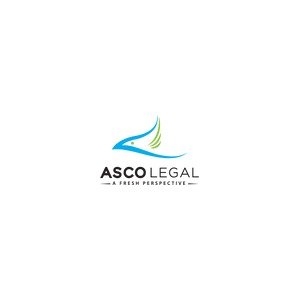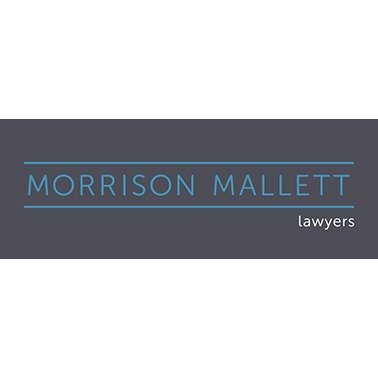Best Sustainable Finance Lawyers in Auckland
Share your needs with us, get contacted by law firms.
Free. Takes 2 min.
List of the best lawyers in Auckland, New Zealand
About Sustainable Finance Law in Auckland, New Zealand
Sustainable finance is a rapidly growing sector in Auckland and across New Zealand that integrates environmental, social, and governance (ESG) criteria into financial services, investments, and decision-making processes. The aim is to support economic growth while reducing environmental pressures, addressing social inequality, and promoting good governance. Auckland, as New Zealand’s financial hub, is seeing increasing demand for sustainable investment products, green bonds, responsible lending, and compliance with national and international sustainability standards. Legal frameworks surrounding sustainable finance are evolving quickly to support the government’s climate commitments and the public’s interest in ethical and future-focused financial practices.
Why You May Need a Lawyer
Navigating the world of sustainable finance can be complex, whether you are a business, an investor, a start-up, or a financial institution. Here are common scenarios where legal help is valuable:
- Structuring green bonds, sustainability-linked loans, or other ESG-focused financial instruments
- Ensuring your business or investment practices comply with evolving sustainability regulations
- Reviewing loan and investment agreements for climate and environmental risk clauses
- Resolving disputes involving greenwashing or misrepresentation of sustainability credentials
- Understanding obligations under New Zealand’s climate and sustainability disclosure rules
- Setting up or advising on socially responsible investment (SRI) portfolios or funds
- Advising on sustainability requirements for procurement, compliance, and supply chain management
- Assisting not-for-profits or community organizations with accessing sustainable finance opportunities
Local Laws Overview
Auckland, as part of New Zealand, operates under a range of local and national laws relevant to sustainable finance. These include laws and regulations that aim to align the financial sector with climate goals and responsible investing practices:
- Climate Reporting Requirements: Larger financial market participants are now required to disclose climate-related risks and opportunities under the Financial Sector (Climate-related Disclosures and Other Matters) Amendment Act 2021.
- Reserve Bank and Financial Market Regulations: The Reserve Bank of New Zealand and the Financial Markets Authority (FMA) have issued guidance on sustainable finance, including responsible investment and climate risk management.
- Green Bonds and Sustainability-Linked Products: There are specific guidelines for issuing green bonds that ensure funds are used for environmental or social projects, with ongoing compliance and reporting obligations.
- Anti-Greenwashing Rules: The FMA regulates mis-selling or misleading claims about the sustainability of financial products, with strict penalties for non-compliance.
- Company Law and ESG: The Companies Act 1993 requires directors to consider the long-term impact of decisions, which increasingly encompasses ESG concerns.
- International Standards: New Zealand financial institutions in Auckland often align with international standards such as the UN Principles for Responsible Investment (PRI), Task Force on Climate-related Financial Disclosures (TCFD), and the EU Sustainable Finance Disclosure Regulation (SFDR), as part of cross-border transactions or global operations.
Frequently Asked Questions
What is sustainable finance?
Sustainable finance integrates environmental, social, and governance (ESG) considerations into investment and lending decisions. It promotes responsible investing that supports long-term growth while addressing climate risks and social impacts.
Do I need to comply with climate disclosure laws in Auckland?
If you are a large financial institution, insurer, or publicly listed company, you may be legally required to disclose climate-related risks and opportunities under New Zealand's new mandatory climate reporting framework.
What is greenwashing in sustainable finance?
Greenwashing refers to making false or misleading claims about the environmental benefits of a financial product or service. This is strictly prohibited under New Zealand law, and regulators can take enforcement action.
Can my small business access sustainable finance options?
Yes, many banks and financial institutions in Auckland provide loans and funding targeting small businesses that meet specific ESG criteria or are pursuing sustainable projects.
How do I know if a bond is classified as green?
A green bond must meet certain criteria, such as funding renewable energy or eco-friendly projects, and comply with guidelines on use of proceeds, reporting, and impact measurements set by local and international regulators.
Are there incentives for sustainable investment in Auckland?
New Zealand offers various incentives, such as government grants, preferential financing terms, and support for businesses and investors undertaking projects aligned with climate and sustainability goals.
What ESG standards apply to investments in Auckland?
ESG investment in Auckland is guided by domestic rules as well as international frameworks such as the UN Principles for Responsible Investment (PRI), the TCFD, and other recognized best practices.
What legal risks should I be aware of in sustainable finance?
Risks include breaching disclosure requirements, greenwashing claims, failing to meet sustainability-linked product obligations, and potential litigation for misleading statements or ESG performance gaps.
How can a lawyer assist with sustainable finance transactions?
Lawyers can help structure financing deals to meet sustainability standards, draft and review relevant clauses, ensure regulatory compliance, and represent clients in disputes involving ESG matters.
Are community organizations eligible for sustainable finance in Auckland?
Yes, many sustainable finance initiatives are open to community groups and not-for-profits, often with tailored legal and financial advisory support available.
Additional Resources
If you want to learn more about sustainable finance or need legal guidance, several resources and organizations are available in Auckland and New Zealand:
- Financial Markets Authority (FMA) - Issues guidance on sustainable finance and climate disclosures
- Reserve Bank of New Zealand - Provides information on climate risks and financial system stability
- Ministry for the Environment - Offers resources on climate policy and environmental regulations
- New Zealand Green Investment Finance - Supports low carbon investments
- Sustainable Business Network - Connects businesses committed to sustainability
- New Zealand Law Society - Directory of lawyers with expertise in sustainable finance
- New Zealand Institute of Directors - Information on directors' ESG responsibilities
- Community Energy Network - Resources for community-based sustainability projects
Next Steps
If you are considering engaging in sustainable finance activities or have legal concerns, here is how you can proceed:
- Identify your specific needs, whether it is compliance, transactional support, dispute resolution, or general advice.
- Gather any relevant documents, such as contracts, disclosures, business plans, or product details.
- Search for a lawyer or law firm in Auckland with expertise in sustainable finance, ESG regulations, and related fields.
- Schedule an initial consultation to discuss your objectives, legal obligations, and potential risks.
- Work closely with your legal advisor to ensure you meet all regulatory requirements and make the most of sustainable finance opportunities in Auckland.
As laws and standards in this field are evolving, staying informed and seeking professional advice is crucial for long-term success and compliance.
Lawzana helps you find the best lawyers and law firms in Auckland through a curated and pre-screened list of qualified legal professionals. Our platform offers rankings and detailed profiles of attorneys and law firms, allowing you to compare based on practice areas, including Sustainable Finance, experience, and client feedback.
Each profile includes a description of the firm's areas of practice, client reviews, team members and partners, year of establishment, spoken languages, office locations, contact information, social media presence, and any published articles or resources. Most firms on our platform speak English and are experienced in both local and international legal matters.
Get a quote from top-rated law firms in Auckland, New Zealand — quickly, securely, and without unnecessary hassle.
Disclaimer:
The information provided on this page is for general informational purposes only and does not constitute legal advice. While we strive to ensure the accuracy and relevance of the content, legal information may change over time, and interpretations of the law can vary. You should always consult with a qualified legal professional for advice specific to your situation.
We disclaim all liability for actions taken or not taken based on the content of this page. If you believe any information is incorrect or outdated, please contact us, and we will review and update it where appropriate.

















